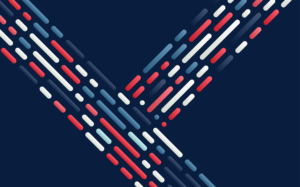 The UK government’s official drugs advisory body has rejected calls to ban the herbal stimulant, khat.
The UK government’s official drugs advisory body has rejected calls to ban the herbal stimulant, khat.
The Advisory Council on the Misuse of Drugs (ACMD) said there was “insufficient evidence” that khat caused health problems.
The stimulant is traditionally used by members of the Somali, Yemeni and Ethiopian communities.
It has been outlawed by the US and Canada and in most European countries, most recently by the Netherlands.
The review was commissioned by the Home Office.
The ACMD said there was “no evidence” khat, which contain the stimulant cathinone, was directly linked with serious or organised crime.
It said khat, which consists of the leaves and shoots of a shrub cultivated in the Horn of Africa and the Arabian Peninsula, was chewed to obtain a “mild stimulant effect much less potent than stimulant drugs, such as amphetamine”.
Khat is sold in bundles for about £3 to £6 each. Users often chew one or two bundles for up to six hours at a time.
Prevention education
Somali groups in the UK had told the council that use of khat, which acts as a stimulant when chewed, was a “significant social problem”.
Campaigners said it caused medical problems and family breakdowns.
The herb also triggers withdrawal symptoms such as tiredness, depression, shaking and bad dreams, although the ACMD said this did not necessarily provide evidence of dependency.
But ACMD chairman Professor Les Iversen said the review “found insufficient evidence of either health or societal harms caused by the use of khat to justify its control in the UK”.
He added: “We have listened to concerns of the community and recommend local authorities and the police address these through continued engagement.”
The council’s vice-chairman, Dr Hew Mathewson, said he gave “no credence” to links between the khat trade and the funding of al-Shabaab, the Somali-based cell of al-Qaeda.
The ACMD recommended that the NHS should include khat in prevention education when necessary and called on local authorities and police commissioners to engage with communities “to address any concerns of khat use causing social harm”.
Tonnes imported
It also said khat usage data should be included in information provided by treatment and enforcement agencies so it could be examined in future research.
More than 2,500 tonnes of khat, worth about £13.8m, was imported by the UK in 2011/12, bringing in £2.8m of tax revenues, the ACMD added.
The report was supported by a former chairman of the ACMD.
David Nutt, who was sacked in 2009 by the then home secretary after claiming ecstasy and LSD were less dangerous than alcohol, said: “Its evidenced, measured recommendation to use current legislation and community measures to address the relatively low harms of khat is just the sort of rational thinking that we need more of in the drug policy debate.”
The members of the ACMD makes recommendations to ministers on issues including the classification of substances under the Misuse of Drugs Act 1971.
BBC home affairs correspondent Danny Shaw said the decision on khat was not unanimous and some members were understood to be unhappy.
Our correspondent said press reports had suggested that the government might now conduct its own review of the substance.
Source BBC
